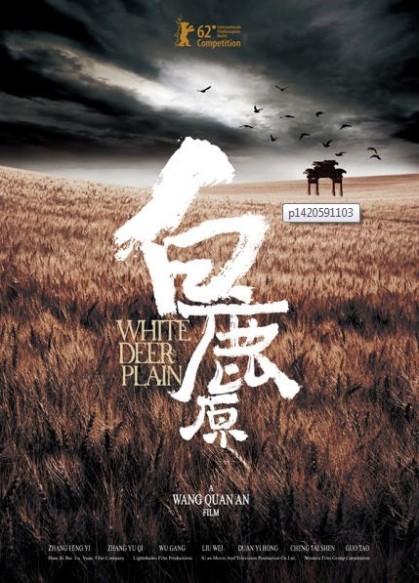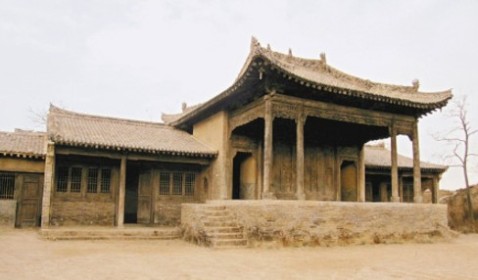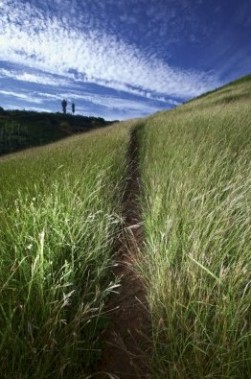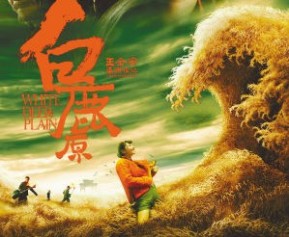(Note: The Wolf of Wall Street is not actually my favorite movie of 2013. I just said so to make the first sentence of this easier to write. Currently my favorite film of the year is Gravity. But I haven’t seen 12 Years a Slave or Before Midnight yet, so it’s really anyone’s game).
It took a manager in a Chinese state-owned enterprise asking me to help double-team his mistress in a Shanghai hotel for me to realize why The Wolf of Wall Street was my favorite film of 2013. I was watching the movie for a second time – still puzzling as to why I found it so enthralling the first – when the manager (or someone claiming to be such) added me at random on WeChat, China’s red hot mobile messaging app. As I gazed upon Leonardo DiCaprio’s character enjoying a three-way, I fended off the manager’s requests for explicit photos to prove I was man enough to do the same. Finally, I made the connection: in spirit, if not quite in the details, The Wolf of Wall Street embodies the hidden, hedonistic thrill that drives so much of China’s official corruption.
The Wolf of Wall Street tells the story of how unscrupulous stock broker Jordan Belfort and his firm Stratton Oakmont made fortunes selling penny stocks to clueless investors, and in the process paints one of the most vivid portraits of materialistic debauchery ever committed to film. The movie confronts American viewers with the “self-indulgent thrill” of these crooks’ lifestyles, and dares them to identify with and even covet it. Only near the end does Scorsese pull the rug out with a literal and figurative gut punch that lays bare the (self)-destructive nature of Belfort’s corrupt Bacchanalia, and a closing shot that can be interpreted as mocking the film’s audience for having been drawn to his ways.
If only we had such a cinematic argument in China! Alas, while the government here has made fighting official decadence a priority, it still finds the subject (self-incriminating as it is) a little too sensitive to permit Wolf’s get-it-all-out-there approach. China’s state-controlled film and television is too often tasked instead with damage control, parading a series of airbrushed imagery that casts most officials as nobly dull – not dissimilar from the commercial for Belfort’s firm that opens Wolf. “Stability. Integrity. Pride.” goes the achingly corporate slogan for Stratton Oakmont, whose offices are shown full of humdrum, competent worker bees. A key difference between the treatment of elite corruption in China and America is that the Belfort’s sanitized commercial is just a two-minute prelude to a 178 more minutes of felonies, sex, drugs, and record-setting vulgarity that lays bare the demented amoral attraction of Wall Street. In China, the bland façade is all there is.
Which is too bad, because in China we would have so much material to work with. The “wild, hyper vulgar exuberance” and “essential vitality” that powers Wolf’s Wall Street crew courses through the corrupted members of the Chinese elite as well – but as astrophysicists must infer from redshifts that the universe is expanding, we must infer as well from tantalizing glimpses of the elite’s decadence: a crashed sports car here, grainy photos of an orgy there, and everywhere rumors swirl about the accumulation of luxury finery, mistresses, and obscene numbers of houses.
A Chinese The Wolf of Wall Street could actually dovetail nicely with the government’s ongoing anti-corruption campaign. Imagine a film that first revels in this simple premise: that China is an authoritarian-capitalist nation whose economic pie is growing so fast that an official can gorge himself on the proceeds with little fear of his subjects or superiors noticing; that legitimate opposition to such an official’s continued enrichment can be demonized as a threat to “stability” to be snuffed out with state resources; that here a cascade of material and carnal pleasures is filling the gap of a traditional value system decimated by years of Communism. And that all of this together is – like Jordan Belfort’s morphine – kind of awesome.
That would be the seductive message of the film’s first two-thirds, in which a young man enters the government with naïve hopes of Serving The People only to have them dismissed by a mentor figure filling Wolf’s Matthew Mcconaughey role. Our official learns that China’s masses are perfectly capable of taking care of themselves, leaving his main tasks to be extracting the greatest benefits from his official perks while learning how to arrange infrastructure and land deals to maximize the potential for GDP growth and bribes. These would be the gogo years after the financial crisis, when China’s epic stimulus package unleashed an all-you-can-eat buffet of corruption on local governments. Sybaritic pleasures follow: banquets overflowing with endangered species and lubricated with a biblical flood of rice wine; drunken nights at karaoke parlors-cum-brothels; a mountain of luxury goods given as gifts; a pretty wife followed by a harem of underage mistresses, who he hides away in his growing collection of illegally-owned apartments and villas.
(Eventually our protagonist would find himself at risk of caught in the Party’s anti-corruption drag net, and would seek to squirrel away his ill-gotten gains in a safe haven abroad. Canada being such a popular choice for corrupt officials on the run, perhaps we can call in Jean Dujardin to repeat his role from Wolf, this time as a banker in Quebec?)
Putting all that hedonistic excess up on the screen will be an explosively cathartic exercise for hundreds of millions of Chinese more often asked to pretend that such impulses are under control (or don’t exist). Going further, a successful Chinese Wolf could lure its audience into empathizing with and eventually envying its protagonists, until an about face near the end that hints at the shattered lives and neglected nation that are left in their wake. A final shot that echoes Wolf could be priceless, settling on a slack-jawed crowd of young civil service exam takers, lusting for the perks of official life while oblivious to their collective contribution to dragging the country into a Nationalist-style corruption meltdown. Played right, it could scare any audience straight, by making people think twice about getting into government for the wrong reasons.
A Chinese The Wolf of Wall Street would need a new name. We’ll swap Wolf for Tiger, in deference to President Xi Jinping’s desire to rid the Party of “Tigers and Flies” (high-level corrupt officials and their small fry brethren). As for Wall Street, we’ll need to exchange America’s avenue of avarice for something with Chinese characteristics. Zhongnanhai – the Beijing compound where all the central party leaders live and work – could be a good candidate, but going after central government bigwigs is all too often still a nono – some tigers are too big to go down. Chongqing could be an alternative. In the wake of the Bo Xilai scandal, the city in its 2007-2012 incarnation has gained a reputation as China’s high church of official corruption. The film wouldn’t necessarily have to be about Bo himself – that story is too well known and specific. But perhaps there is a self-indulgent acolyte of Bo’s (a tiger cub, if you wll) whose story we could grab and embellish to fit a three-hour film. Anyway, that would give us the name: The Tiger of Chongqing.
China’s government and its media watchdog SARFT would never let this movie happen. But man, what a world if it did?







